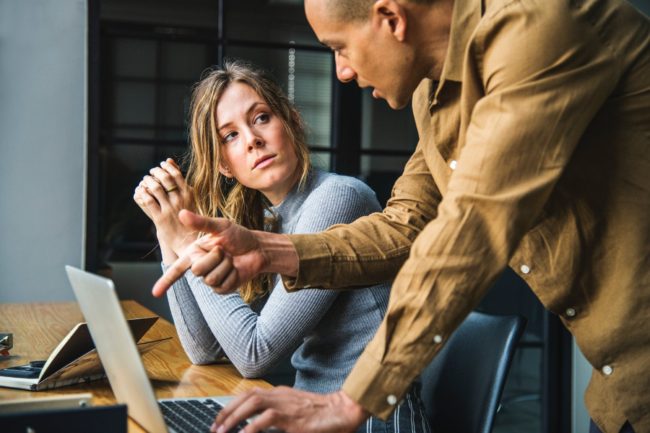
By David Majchrzak
Rule of Professional Conduct 1.4 imposes a duty on lawyers to communicate with their clients. Whether the attorneys choose to do so through emailing, texting, telephoning, or drafting letters, each of those options is likely available through the phone that often resides in the lawyer’s purse or pocket.
Of course, lawyers have several obligations beyond just communicating. In addition to sufficiently explaining in a reasonably understandable manner so that their clients may make informed decisions, lawyers must protect confidential information, including those attorney-client communications. With cell phone communications, there are several ways to do so.
What should be an obvious risk is often one that is unnecessarily taken. Conversations may be overheard. Take a look around at the next lawyer event you attend. At one point or another, there will almost certainly be colleagues on their phones. Look closely and observe, some are much more discreet than others.
In such a public environment, lawyers might consider several things, including whether anybody else might be able to hear them and, if so, the availability of a more private place. In the alternative, attorneys may simply discuss the confidential information at another time. If it is that pressing that it cannot wait, then lawyers may excuse themselves from the event and tend to the client emergency.
Of course, there may be a balance that can be struck. For example, the lawyer could start by informing the client of the public environment that the attorney is in and the fact that others might be able to hear the conversation, which could imply that it is not intended to be confidential. As part of the conversation, the lawyer should provide the client with sufficient information to assess whether the conversation should continue in the presence of others or occur under different circumstances. Often though, the best answer is to wait for a better time or to have the lawyer relocate to a private location.
Lawyers should also consider that third parties may intercept calls. There is less risk than many years ago when analog cell phones were more prevalent. But that does not mean the situation should be ignored. Attorneys should still assess whether they are speaking on secure networks and whether the encryption that their carriers provide is sufficient.
Finally, be aware of the pocket dial. Especially as lawyers walk through their offices, there is the risk that somebody may be inadvertently “invited” to a conversation where confidential information is exchanged. Because cell phones can be locked, there is a way to prevent such an event. Taking such a simple measure also helps protect information in case the cell phone is lost.
Competency in the technology that lawyers use is not optional; it is ethically required. (Rules of Prof. Conduct, rule 1.1.) That includes understanding how to protect clients’ confidential information when using tech, including something as ubiquitous as a cell phone.
David Majchrzak, shareholder and attorney with Klindinst PC.
**No portion of this summary is intended to constitute legal advice. Be sure to perform independent research and analysis. Any views expressed are those of the author only and not of the SDCBA or its Legal Ethics Committee.**
This article was originally published in the SDCBA’s “Ethics in Brief” column series.